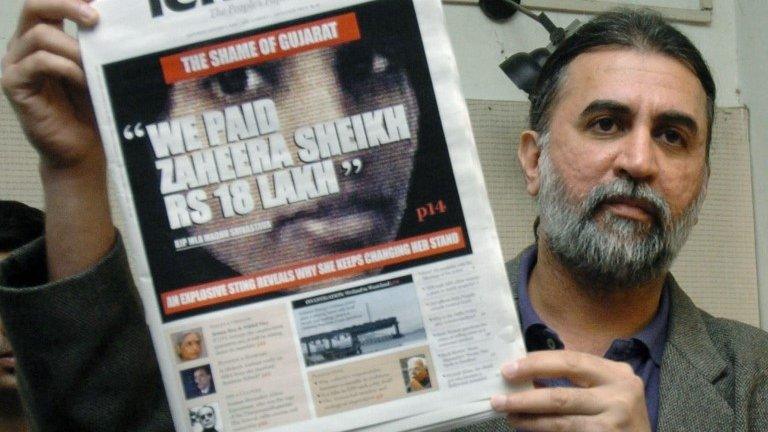Tarun Tejpal: Indian former editor cleared of raping colleague
- Published
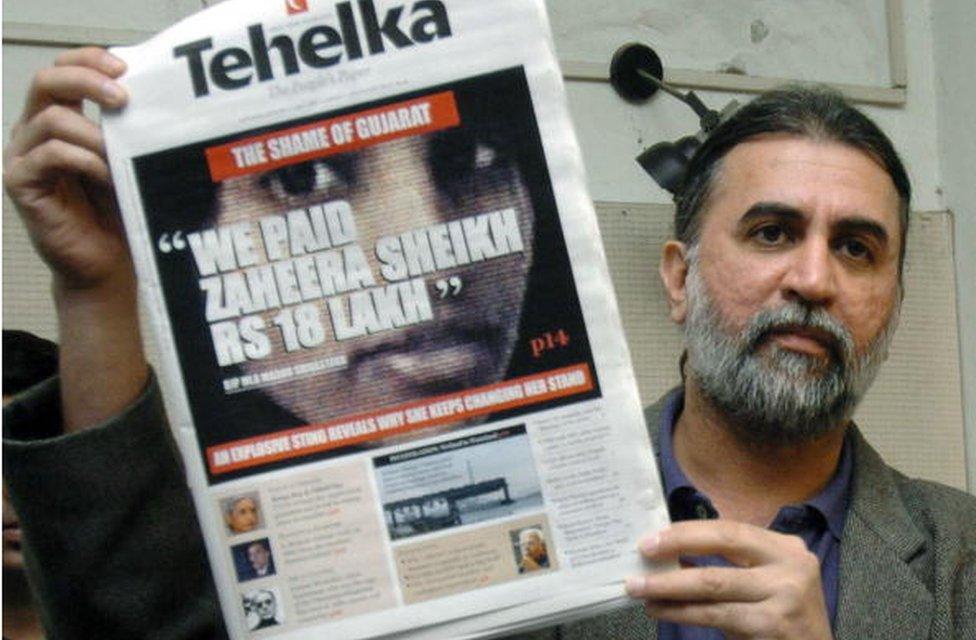
Mr Tejpal is a former editor of Tehelka
An Indian court has cleared Tarun Tejpal, the former editor of Tehelka magazine, of charges of raping a colleague.
His unnamed accuser had alleged that he assaulted her in an elevator at a Tehelka event in Goa in November 2013.
He was arrested and spent seven months in jail until the Supreme Court granted him bail.
Mr Tejpal had consistently denied the accusations against him. The prosecution said they would appeal.
In a statement on Friday, Mr Tejpal requested privacy for his family as "we try and reclaim our broken lives".
"The past seven and a half years have been traumatic for my family as we have dealt with the catastrophic fallout of these allegations on every aspect of our personal, professional and public lives," he said.
Mr Tejpal also paid homage to his lawyer Rajeev Gomes who died of Covid-19 last week.
What happened in court?
On Friday morning, the trial court in Mapusa in the western state of Goa threw out all the charges against Mr Tejpal.
Police had filed charges running into nearly 3,000 pages, accusing him of "wrongful restraint, wrongful confinement, assault, sexual harassment and rape by a person in position of authority or control".
He had denied all the accusations and pleaded not guilty.
The prosecution had put forward a list of 156 witnesses, but in the end, about 70 were cross-examined.
The trial was held "in-camera" which meant journalists were not allowed to be present in court.
Who is Tarun Tejpal?
One of India's most prominent journalists, Mr Tejpal launched Tehelka in 2000 after decades of working in some of the country's best-known newspapers and magazines.
Tehelka soon became known for breaking some of the biggest investigative stories in Indian journalism. It specialised in "sting operations" - with its reporters posing as someone else and using secret filming to unearth corruption in public life.
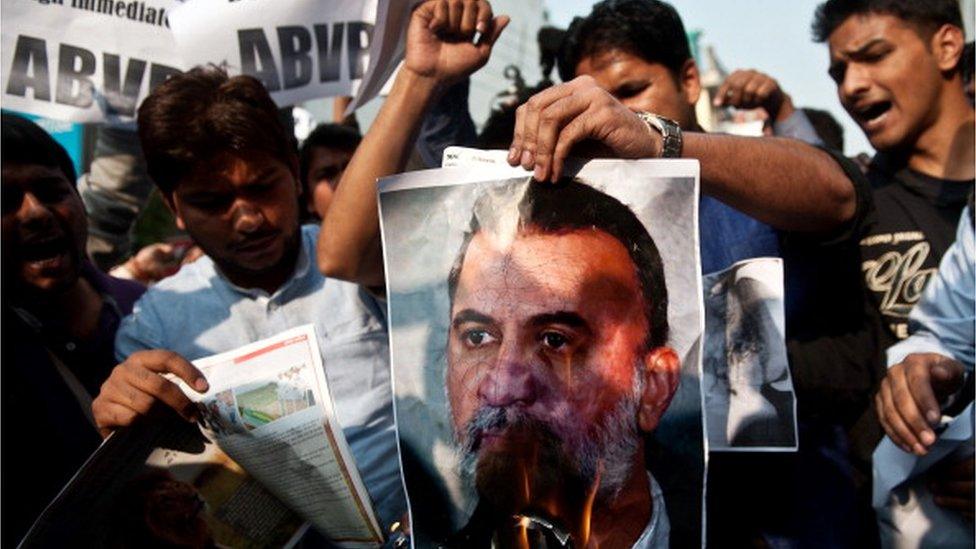
Members of ABVP, the BJP's youth wing, held street protests demanding Tarun Tejpal's arrest
Its biggest scoop - Operation West End - came in 2001. Reporters posed as arms dealers, offered bribes and prostitutes and secretly filmed army officials, bureaucrats and even the president of then ruling Bharatiya Janata Party (BJP) accepting bribes to push through a fake arms deal.
The revelation brought the Indian government to its knees and boosted Mr Tejpal's popularity, with The Guardian calling him "India's most feted journalist".
Mr Tejpal also set up the publishing house India Ink and counted Booker Prize-winner Arundhati Roy and Nobel laureate VS Naipaul among his close friends.
He also authored three novels. His first, The Alchemy of Desire, won France's Le Prix Mille Pages for Best Foreign Literary Fiction and was also nominated for the 2005 Bad Sex Awards that recognise the most embarrassing writings on sex.
What was the case about?
In November 2013, a young female colleague, who can't be named under Indian law, accused Mr Tejpal of assaulting her inside the hotel elevator during a conclave organised by Tehelka.
Mr Tejpal initially blamed it on "a lapse of judgement" and "a misreading of the situation" which had "led to an unfortunate incident that rails against all we believe in and fight for".
But as the case escalated, he issued a statement urging the authorities to examine the CCTV footage "so the accurate version of events stands clearly revealed".
He said the case against him was part of a "political vendetta" by the BJP government in Goa.
The case made headlines, especially as it came amid a debate about attitudes to sexual violence in India after the brutal gang rape and murder of a woman in Delhi in December 2012.
Critics accused Tehelka, which had done cover stories on gender inequality and misogyny, of hypocrisy and double standards.
Women's groups and members of ABVP, the BJP's youth wing, held street protests against Mr Tejpal.
He was arrested on 30 November 2013 and was released on bail seven months later in July.
He later tried - unsuccessfully - to get the Goa high court and India's Supreme Court to quash the charges against him.

Read more from Geeta Pandey

You may also like:
The woman fighting back against India's rape culture
Related topics
- Published17 February 2021
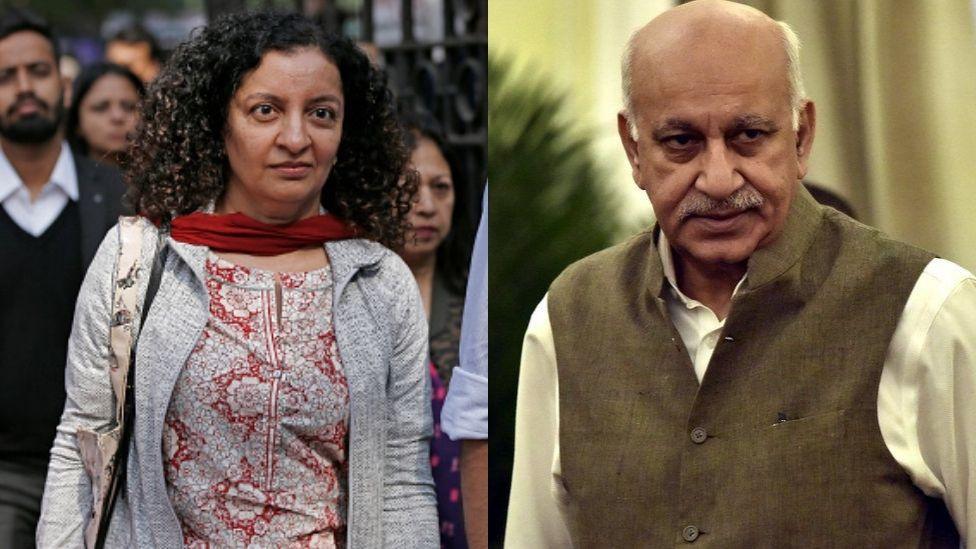
- Published28 November 2013
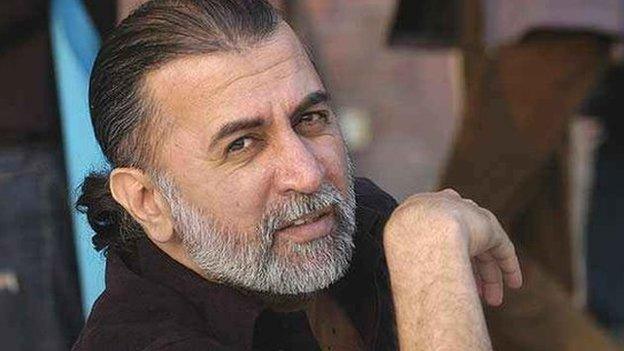
- Published1 July 2014
